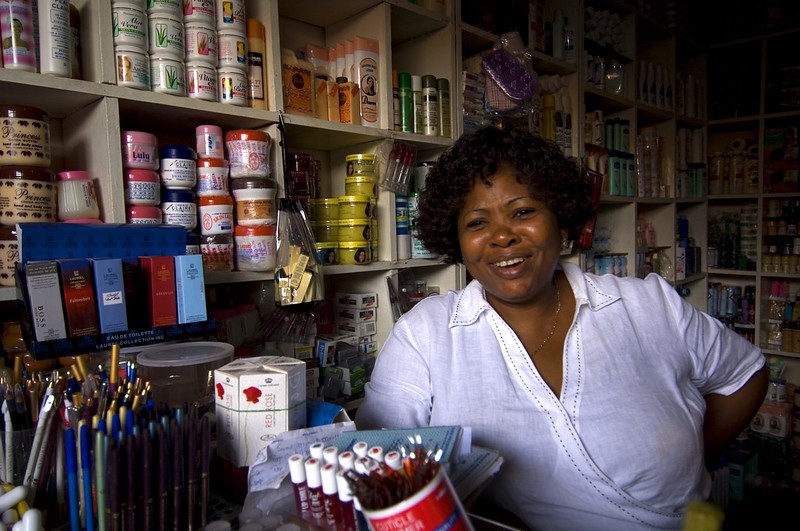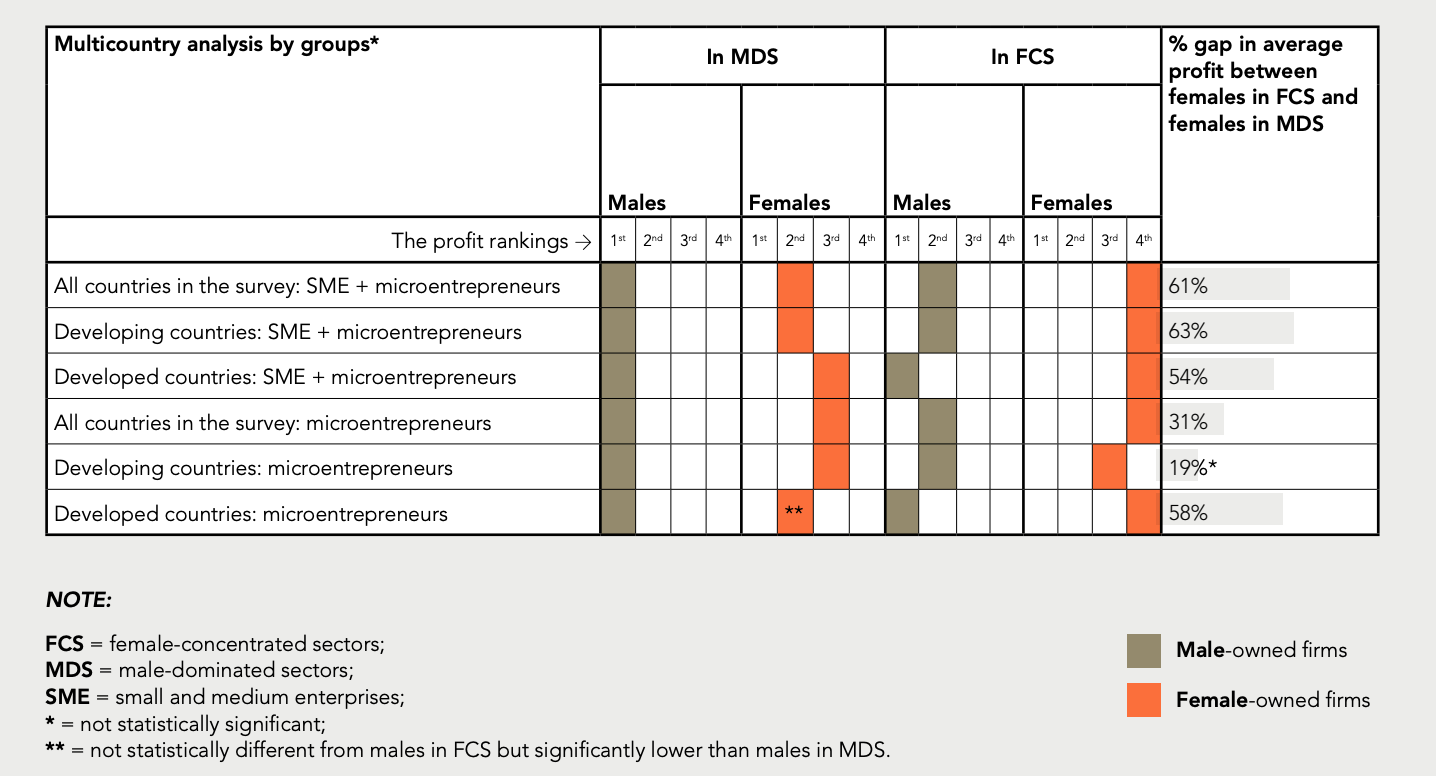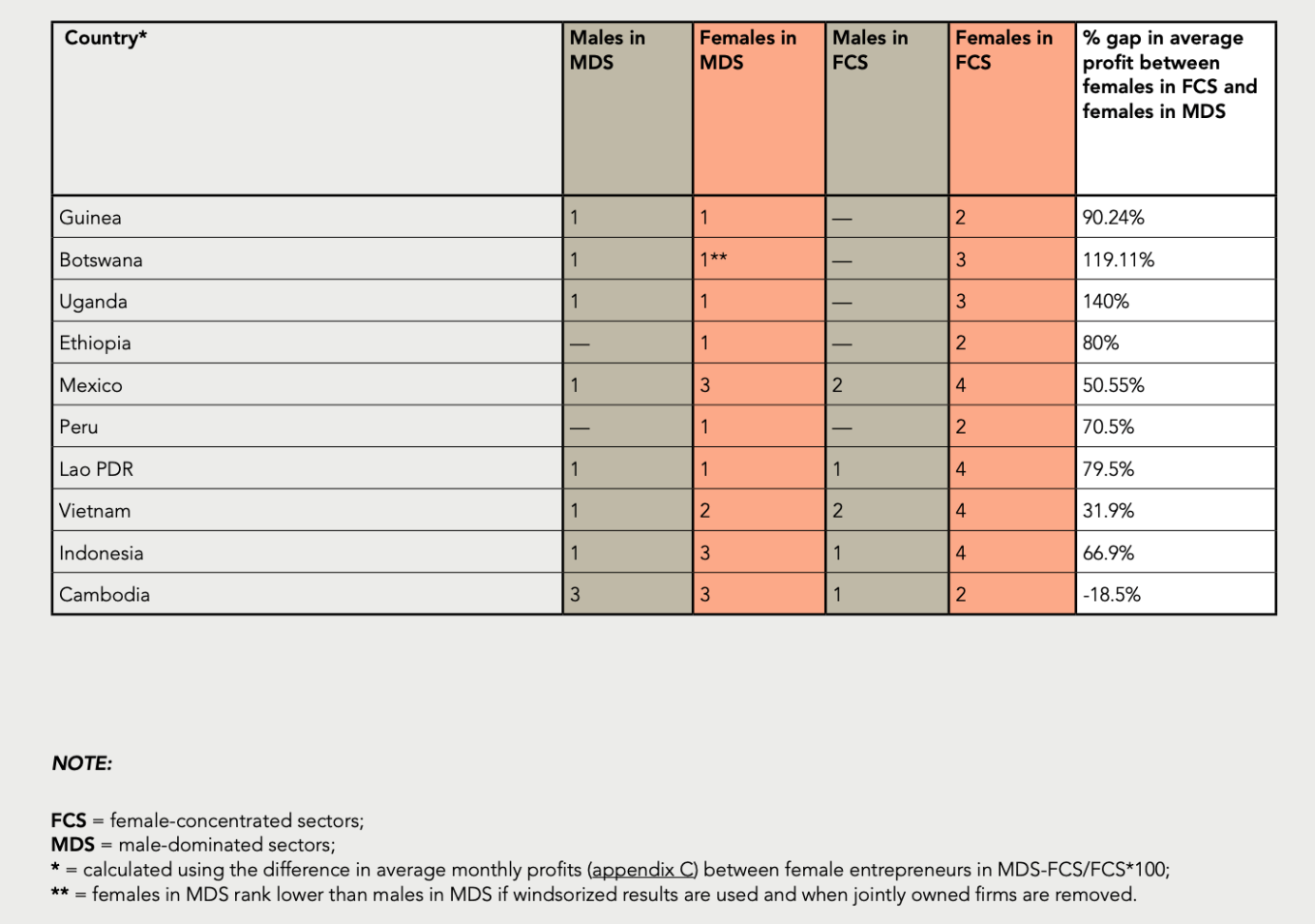Empowering Female Entrepreneurs to Cross Over into Male-Dominated Sectors
by Africa Gender Innovation Lab , East Asia and Pacific Gender Innovation Lab , Latin America and the Caribbean Gender Innovation LabMeta Gender Jobs and Development
Female entrepreneurship is on the rise globally. However, factors such as social norms and unconscious biases are holding women back from entering more profitable male-dominated sectors. Breaking Barriers: Female Entrepreneurs Who Cross Over to Male-Dominated Sectors, produced by the World Bank Africa Gender Innovation Lab, the East Asia and Pacific Gender Innovation Lab, and the Latin America and the Caribbean Gender Innovation Lab under the guidance of the World Bank’s Gender Group, analyzed data from 10 low- and middle-income countries across three regions as well as Facebook’s Future of Business survey to offer insight into who are the women who break into male-dominated sectors. This report’s findings provide key information for decision-makers to implement programs and policies that enable women and girls to enter more profitable sectors.
Challenge
Women make up a greater share of entrepreneurs worldwide than ever before. Despite an increased number of women-led companies globally, women operate smaller businesses and concentrate in less profitable sectors than men.
Unconscious biases, societal norms, lack of exposure to the sector, and time and capital constraints are just some of the factors holding women back from entering male-dominated sectors (MDS).
For example, MDS are usually more capital-intensive, which may be a barrier for women given the constraints women face in accessing capital. Due to these constraints, female entrepreneurs may select sectors that typically have smaller and less efficient businesses and require fewer capital inputs.
However, very little research has been undertaken to identify the factors associated with being a female entrepreneur entering MDS. Without high-quality data, we cannot offer evidence-based programs and policies which support women to cross over into more profitable sectors and contribute to their business performance.

Solution
Breaking Barriers: Female Entrepreneurs Who Cross Over to Male-Dominated Sectors, produced by the World Bank Africa Gender Innovation Lab, the East Asia and Pacific Gender Innovation Lab, and the Latin America and the Caribbean Gender Innovation Lab used data from 10 low- and middle-income countries across three regions as well as a global survey of entrepreneurs in 97 countries through the Future of Business (FoB) survey by Facebook.
This data demonstrated the differences in profits among female entrepreneurs who cross over into MDS compared to those who remain in traditionally female-concentrated sectors (FCS) and offered a snapshot of the factors associated with female entrepreneurs who cross over to MDS. Finally, based on the data analysis, the team provided an overview of the types of policies and programs that can be implemented to support women entrepreneurs crossing over to the typically more profitable MDS.
One key pattern which emerged from the FoB survey is the“profitarchy” - a hierarchy of profits by gender. This revealed how profits of women performed in MDS compared to profits of men in MDS, and of women in FCS. It was found that men in MDS were the top earners and made statistically significantly higher profits than all other categories.
Importantly, the global data from the FoB study generally indicated that women in MDS on average made more profits than female entrepreneurs in FCS. The studies of 10 low- and middle-income countries also showed the same finding in all countries except Cambodia, where the opposite is true.
Crossing over to MDS in some countries could help women entrepreneurs become as profitable (on average) as male entrepreneurs operating in MDS. But the country context is also important as in some countries, firms owned by men continue to do better than female entrepreneurs irrespective of the sectors they operate in. This suggests crossing over as only one promising tool in a broader set of policies to support female entrepreneurs . This might be a result of women clustering in less profitable roles/activities within the same sector, discrimination faced by women in male-dominated sectors, or other gendered barriers that limit profits of women.


The team also unpacked this “profitarchy” by analyzing what is different about women who cross over from those who do not. Factors such as women’s education, past exposure to MDS through work experience or training, and exposure to MDS through male relatives, mentors, or role models appear to be positively associated with crossing over in almost every country where these were assessed. These key factors were analyzed both in the FoB survey and in the individual country survey data.
Impact
Facebook’s FoB survey along with ten individual country studies provided rich data for the Breaking Barriers: Female Entrepreneurs Who Cross Over to Male-Dominated Sectors report, helping us understand the difference in profits between female entrepreneurs who cross over to MDS compared to those who remain in FCS as well as the factors associated with being a female entrepreneur in MDS.
The report and its underlying data can be used by policymakers and companies to offer evidence-based programs and policies which can support women to cross over into more profitable sectors and contribute to their business performance more generally.
For instance, some of the recommendations discussed in the report include increasing women’s information on returns to operating in MDS and increasing their exposure to male-dominated sectors by encouraging spousal support, apprenticeships, role models and mentors.
If workers are limited to certain sectors based simply on gender, this prevents the economy from making the best use of the skills available. We need to break down barriers to women’s business performance. This report, thanks to its rich data analysis, is crucial to shape policies and programs that will enable female entrepreneurs to increase their incomes and unleash their potential.